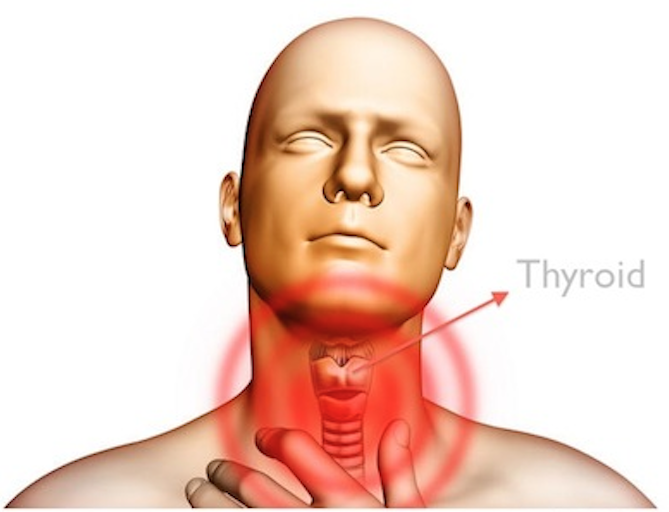Hypothyroidism may be one of the least recognized disorders with profound impact upon our health. Along with hormone supplementation and anti-immune therapy, nutrition can play a large role in thyroid health. The incidence in North America is approximately 10% of the general adult population, with women affected 5-8 times more than men. Eighty percent of thyroid disease is hypothyroid vs hyperthyroid.
Hypothyroid symptoms are extensive and include depression, fatigue, weight gain, reduced libido, memory and concentration issues, feeling cold, reduced body temp, muscle cramps, dry skin and hair, hair falling out, hoarseness and slowed heart rate. Some people have improved but lingering signs and symptoms while taking thyroid supplement medications.
Thyroid hormones are required for cellular metabolism and energy throughout the body, influencing growth and development, body temperature, menses and weight control. They also participate in heart muscle activity, brain development in the fetus and post-natal period, and the utilization of cholesterol and several nutrients. In adults, thyroid hormones influence mood and behavior, and they are linked to depression and bi-polar disorder. Hypothyroidism also impairs cholesterol metabolism resulting in elevated cholesterol levels, a key risk factor for heart disease. Anemia and hypothyroidism are co-conspirators.
Autoimmune disorders are strongly associated with hypothyroidism. Hashimoto’s thyroiditis is a common cause of hypothyroidism. Others include type 1 diabetes, rheumatoid arthritis, lupus, Sjogren’s syndrome and B12 pernicious anemia.
The Nutrition Connection:
Many people have undiagnosed food allergies and intolerances. These may contribute to intestinal permeability, “ leaky gut syndrome “ and autoimmune disorders. For example, Celiac Disease is linked to autoimmune thyroid disease in some people. Because of these reasons, an elimination diet should be incorporated into the nutritional assessment.
Goitrogens are natural occurring substances found in various foods. They can contribute to goiter formation ( enlarged thyroid gland ). These foods can also slow down thyroid function by blocking the utilization of iodine in forming and secreting thyroid hormones. There are many goitrogenic foods, especially cruciferous vegetables such as broccoli, cauliflower, spinach, cabbage and brussel sprouts. (This doesn’t mean you have to avoid your favourite foods, just eat them in moderation in their cooked form which reduces the goitrogen effect.)
Iodine, a trace element, and tyrosine, an amino acid, are integral components of thyroid hormones. Iodine is a critical micro-nutrient which is not uniformly available in adequate amounts in the food chain around the world. The effective solution in several countries has been to iodize table salt. Unfortunately, Bromine Chlorine and Fluorine, halides with similar atomic structure to Iodine, can competitively inhibit iodine absorption and binding in the body.
Bromine is found in fire retardants, brominated vegetable oil, and brominated flour which can end up in bread and pop. Fluoride is added to municipal water to fight tooth decay but is banned in several European countries.
Chlorine is often added to municipal tap water as a disinfectant, It is found in several bleach and solvent preparations. It is reactive and may form mutagens when combined with some plant phyto-chemicals. It is a chemical ingredient of dioxins , PCB’s and DDT, a banned insecticide.
Other micro-nutrients involved with the manufacture of thyroid hormone include zinc, vitamins A, B group and E, copper and selenium. Several anti-oxidants including vitamin C and E, turmeric and others may play a role to improve thyroid function because of the role of thyroid hormones in oxidative stress.
Exercise can play a significant role in offsetting hypothyroid symptoms, especially during weight loss, as it can compensate for a slowing metabolism.
In summary, nutrition and micro-nutrients are intimately involved with thyroid health and thus thyroid symptoms. Holistic nutrition incorporating the above information complements the medical management of hypothyroidism.
Learn more about the Power of Food and nutritional strategies to improve your health with MarshaFenwickNutrition.
© Marsha Fenwick, Clinical and Holistic Nutritionist.
Marsha Fenwick RRT RHN
Registered Nutritionist
marsha@marshafenwicknutrition.com
www.marshafenwicknutrition.com
416 820 8017
Like Us on Facebook






